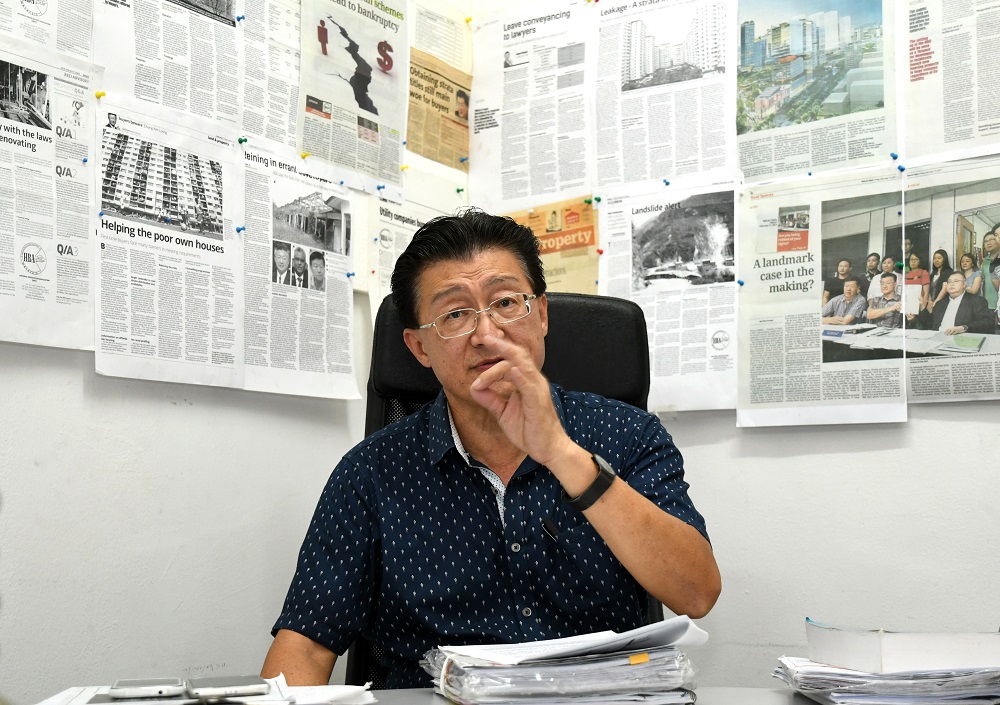
A strata title is one of the title structures of ownership and control over property. It is usually applied to subdivided buildings or complexes such as high-rise buildings, town houses, duplexes, flats, apartments, condominiums and commercial buildings.
This form of title gives individuals ownership over the units they occupy while the land and common property are controlled by the Management Corporation (MC).
The structure of strata titles designates the MC as the owner of the land, which enables parcel owners to have more control over the spaces they occupy. The MC is also responsible for matters involving legal obligations in its dealings.
For the owners, the MC generally takes responsibility for maintenance of the common area, insurance and/or as an informal mediator among residents.
Read also
Management bodies and how they function
Unfortunately, many residents and owners in Malaysia have not reached the stage where the MC can be formed because of delays in obtaining strata titles. In fact, it is not uncommon that many buyers of this type of property are not even aware of the need for strata titles.
Why are strata titles important?
The National House Buyers Association (HBA) strongly advises house buyers to get, keep and preserve the strata titles to their residential units for the following reasons:
⚫ As ultimate proof of your property ownership. For example, when you say you own a car, you have the registration card to prove it and there is no need for you to get the consent of the carmaker when you need to refinance or sell the car.
As a dealing instrument for instances of charging to banks for loans.

⚫ You need not obtain the consent of the developer, land proprietor or liquidators who may impose administrative charges of between 1% to 3% as their “consent fees or verification charges” or by whatever name they call it, if and when you should decide to sell your property.
⚫ To form a MC by owners of the subdivided building to maintain and manage the building and to have their own bylaws, usage or restrictions. In the interim period, a Joint Management Body (JMB) do have a say in the way the building is managed or maintained and control over the monies collected for maintenance charges, sinking funds, etc.
⚫ As the final proof of the built-up area of your unit and ultimately your apportionment of the share in the total aggregate units.
⚫ As long as the strata titles have not been transferred, the land and the common property are still owned by the developer. Should the developer company go under liquidation or become insolvent before strata titles have been obtained, the unit owners will have to go through a lot of trouble or might eventually have to pay for the application of the strata titles themselves.
Are we moving towards the right direction?
The Strata Titles Act 1985 (STA) has been amended a few times since its enactment. By now the Act has existed for nearly 35 years. As strata housing schemes have become more common, the basis of the strata title arrangement have been well tested.
It has become clearer that there are specific problems that need to be addressed in many areas.
HBA is of the opinion that we will not be well served by the recent amendments to the Act. We note the recent amendments have been purportedly to streamline the existing Act as well as to serve as a deterrent to developers who have deliberately flouted the law by taking advantage of unsuspecting house buyers. Only time will tell the effectiveness of the amendments.
On the other hand, HBA is of the opinion that it would be best to start a new Enactment that is far-sighted to reform the entire laws governing stratified properties instead of a short-sighted and unsatisfactory “piece-meal” approach that merely makes cosmetic changes in bits and pieces as and when a situation arises like a patch-work job. Reforms are necessary as this concerns the people’s ownership of their own homes.
Whose responsibility in enforcement?
Strata schemes are meant for owners to take charge of the maintenance and management of the common properties. That being so, due care should be given to expedite the transfer of titles to owners for them to start learning the process.
Relevant authorities should help to give detailed guidelines on the process from before transition from developer, during transition, to the actual running of the MC.
Pursuant to Section 8 of the STA, developers are required by law to apply for the titles within six months from the date of the issuance of certificate of fitness by the local council or such other compulsory circumstances as facilitated in the same Section of this Act.

Under Clause 10 of the then sale and purchase agreement (Schedule H), developers are statutorily bound to apply for strata titles “expediently” at their own cost and expenses. How often has this been dealt with efficiently by developers?
We read of warnings from all sources of charging developers in court for not applying for the strata titles, but in reality and honestly speaking, how many developers have been charged for breaching this provision of the STA?
We can think of various reasons developers do not see the urgency in applying for strata titles, two of which are:
1. Enforcement is slacking, and threats of legal actions have so far been all bark but no bite;
2. Unless purchasers make a complaint, nobody would know that strata titles have not been applied or transferred to owners.
A check with the Ministry of Energy and Natural Resources, which administers the STA, reveals that unless an owner makes a complaint on the strata title issue, no action will be taken.
We are taken aback that there is no system to monitor the compliance of strata title applications. The onus, it seems, is on strata property owners to do the checking. On the same issue, no one knows exactly how many strata property owners are still waiting for their titles.
Closing the floodgates
HBA has made several suggestions to “close the floodgate” of housing developers refusing/ neglecting/failing to apply for strata titles and it has now become law. In our next article, we will write on the safety measures and “casting the nets wide” enough to circumvent the issues of non-application of strata titles.
These suggestions would give more protection to purchasers and a push to developers to expediently transfer the titles to their unit owners.
Datuk Chang Kim Loong is the Hon. Secretary-General of the National House Buyers Association (HBA).
HBA can be contacted at:
Email: [email protected]
Website: www.hba.org.my
Tel: +6012 334 5676
This story first appeared in the EdgeProp.my E-weekly on April 2, 2021. You can access back issues here.
Get the latest news @ www.EdgeProp.my
Subscribe to our Telegram channel for the latest stories and updates

.png?1HCcXjc58ilY8zUkpVqOxUVEH7w8jTPX)



